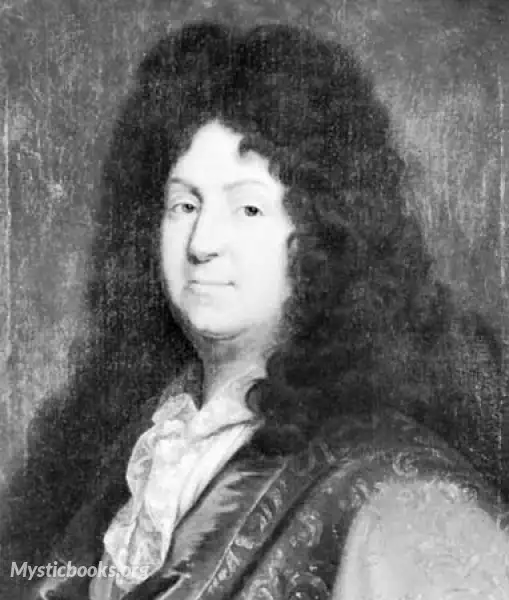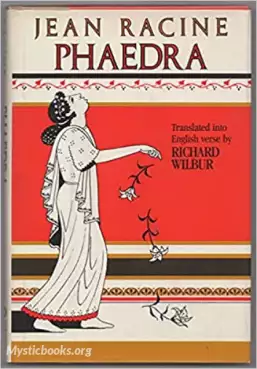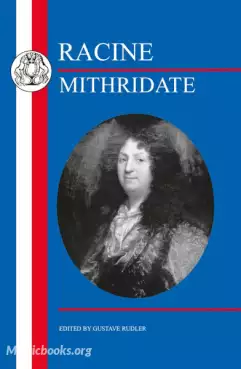
Timeline
Title
Country/Nationality
Jean Racine
Jean Racine was a French dramatist, one of the three great playwrights of 17th-century France, along with Molière and Corneille, and an important literary figure in the Western tradition. Racine was primarily a tragedian, producing such "examples of neoclassical perfection" as Phèdre, Andromaque, and Athalie. He did write one comedy, Les Plaideurs, and a muted tragedy, Esther for the young.
Racine was born on 22 December 1639 in La Ferté-Milon (Aisne), in the province of Picardy in northern France. Orphaned by the age of four (his mother died in 1641 and his father in 1643), he came into the care of his grandparents. At the death of his grandfather in 1649, his grandmother, Marie des Moulins, went to live in the convent of Port-Royal and took her grandson with her. He received a classical education at the Petites écoles de Port-Royal, a religious institution which would greatly influence other contemporary figures including Blaise Pascal. Port-Royal was run by followers of Jansenism, a theology condemned as heretical by the French bishops and the Pope. Racine's interactions with the Jansenists in his years at this academy would have great influence over him for the rest of his life. At Port-Royal, he excelled in his studies of the Classics and the themes of Greek and Roman mythology would play large roles in his future works.
He was expecte to study law at the Collège d'Harcourt in Paris, but instead found himself drawn to a more artistic lifestyle. Experimenting with poetry drew high praise from France's greatest literary critic, Nicolas Boileau, with whom Racine would later become great friends; Boileau would often claim that he was behind the budding poet's work. Racine eventually took up residence in Paris where he became involved in theatrical circles.
Books by Jean Racine

Phaedra
In the court of Louis XIV, adaptations of Greek tragedies were very popular. This play, heavily influenced by Euripides' Hippolytus, deals with love that violates social taboos. Note: In Racine's work, a new "scene" begins whenever a character enters...

Berenice
Titus, emperor of Rome, wants to marry Berenice, queen of Palestine, but decides that Rome will not be able to handle having him marry a foreign queen. Berenice refuses to stay in this case and leaves Rome. Unlike many of the other Racine plays, ther...

Bajazet
"The time to which this tragedy relates is much later than that of any other of Racine's historical plays. The capture of Babylon (or rather Bagdad) from the Persians by Sultan Amurath IV, on which the catastrophe of the plot depends, occurred only a...

Mithridates
Another tragedy by Racine, based on the historical character and career of Mithridates circa 63 BCE. Closing with sorrow and lamentation and promises of a "search for vengeance".

Iphigenia
Racine's version of the time-honored story of Iphigenia was acted for the first time in 1674. The model upon which it is shaped is the "Iphigenia in Aulis" of his favorite Euripides, but the French poet has heightened the romantic interest and compli...

Athaliah
In the ancient kingdom of Judah, a relentless battle for power ensues, shrouded in a web of ambition, loyalty, and divine intervention. Jean Racine's "Athaliah" beckons readers into a realm where thrones are coveted, secrets are buried, and fate pivo...

Thebaid, or The Brothers at War
Thebaid, or The Brothers at War is a tragedy written by Jean Racine in 1664. The play tells the story of the battle between the brothers Eteocles and Polynices, who are vying for the throne of Thebes and has themes of ambition, power, and the destruc...

Alexander the Great
Jean Racine's *Alexander the Great* is a classical French tragedy that explores the life and conquest of Alexander the Great. The play, adhering to the strict rules of French neoclassical drama, presents a unified plot taking place within a single da...

Andromache
Andromache, a tragedy by Jean Racine, explores the complexities of love, duty, and revenge set against the backdrop of the aftermath of the Trojan War. The play follows the titular character, Andromache, the widowed wife of Hector, as she navigates t...

Litigants
Litigants is a French adaptation of "The Wasps" by Aristophanes. It is a satirical comedy that pokes fun at the legal profession. The play follows the misadventures of Dandin, a judge who is constantly being pestered by litigants. Dandin's son, Leand...

Britannicus
Britannicus is a five-act tragedy by Jean Racine, set during the Roman Empire under Emperor Claudius. The play revolves around the complex relationships and power struggles within the imperial family. The titular character, Britannicus, is the son an...